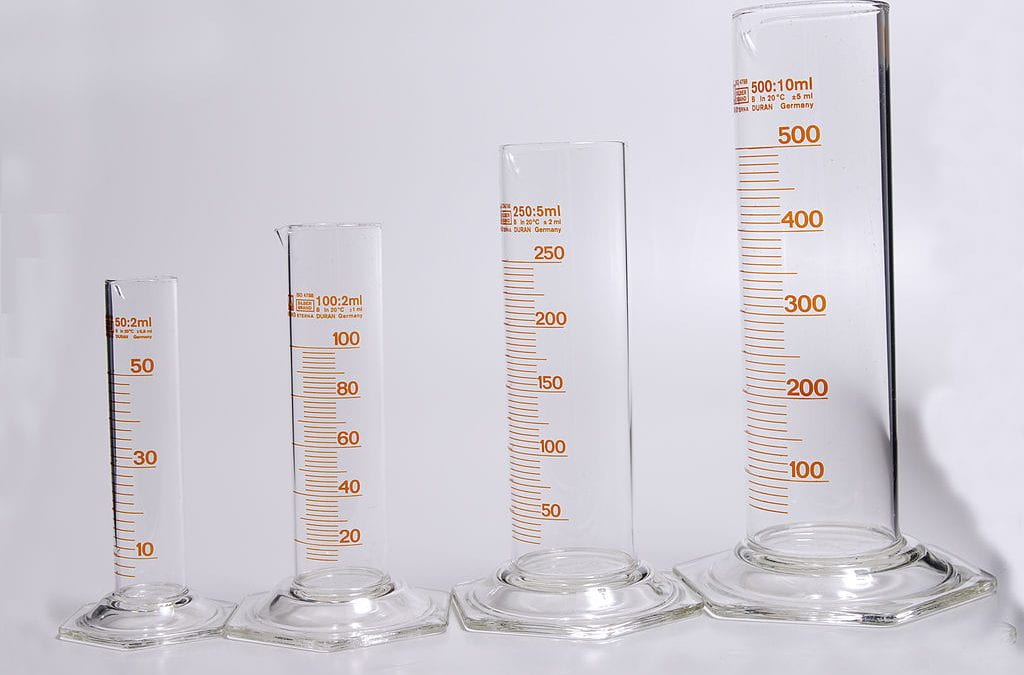Object being explored: A Graduated Cylinder
Photo Attribution: Lilly_M, CC BY-SA 3.0 <https://creativecommons.org/licenses/by-sa/3.0>, via Wikimedia Commons
The scientific method is predicated on being an objective, repeatable method to test and prove theories and acquire knowledge. However, even the method and tools we use to collect that data can be hard to make fully objective. Take the example of a graduated cylinder, which is used to measure the exact quantity of liquid being used. In order to do this, one has to be exactly at eye level with the meniscus or level of liquid in the cylinder. However, eye-level can be subjective to everyone, and it can therefore be impossible for everyone to fully agree on the quantity of a liquid. This is just one example of how it can be very hard, or almost impossible, to be fully objective when collecting data in the field of natural sciences.
In applying this phenomenon on a wider scale, this example shows us how it can also be hard to fully replicate an experiment sometimes, and so results could potentially be affected by this. One could also argue that something as small as a few millimetres difference or subjectivity in the quantity of liquid can do no harm and that objectivity on a wider scale in science (the experimental method) is what matters more. However, there are some cases that come to mind where objectivity and possible errors can have major implications. For example, errors or discrepancies in measurements could lead to inaccurate calculations, predictions, or theories. Nevertheless, one could still argue that there are mechanisms such as peer review which can help scientists minimize the risk of this happening.
One final point which may be interesting to talk about is the idea of accuracy vs precision in the field of science, which help scientists to think about error. Here, accuracy is how far away a measurement is from the real or true value, and precision is how close measurements of the same item of phenomenon match each other. Both of these aspects here relate to the possible subjectivity of science- inconsistent or inaccurate measuring tools (or people) can cause errors in data, – and both are needed for good, objective measurements. However, what is also clear is that science can tolerate a bit of inaccuracy and imprecision, and that more than getting the perfect value, or getting similar values every time when collection data, it is important to guard against factors which can affect the accuracy and precision of data, rather than try to eliminate it all together. Maybe science would be better- and will become better- without the interference of humans and the use of AI and better technology, but the measurement systems we have now seem to be objective enough for us to trust them, and who knows? Maybe there are benefits to the subjectivity of science.

Very nice read, well done. Clear distinct paragraphs, each one for a specific situation, including example and interpretation. The first (eye level) one seems to be the same concept as the second (measurement scale) one, so be careful as this sort of renders the first paragraph redundant. The final paragraph is also not DIRECTLY related to the title, maybe if it was relating to ‘extent’ or ‘production or acquisition’ this would fit the purpose of the writing better. Very good work for a first attempt at a TOK sentence.